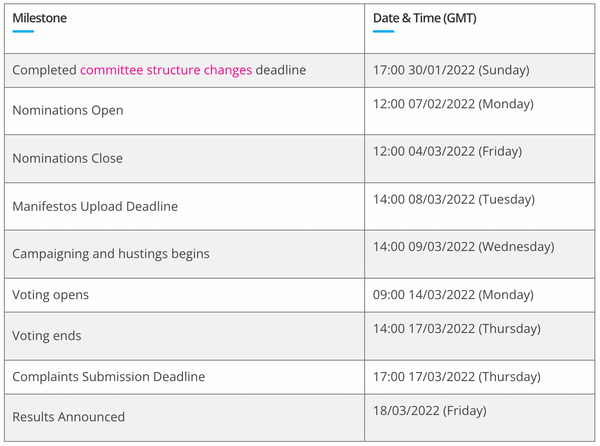Student loan repayment threshold frozen
Student loan repayment threshold will remain as is, instead of rising to account for inflation

Universities minister Michelle Donelan announced on Friday that the student loan repayment threshold would remain as it is now for the 2022/23 academic year, rather than rising to account for inflation.
The statement comes at a time where inflation rates are at a 30-year high of 5.4%, with some experts predicting they will rise above 7% by the end of the year.
Donelan’s statement was made via a written statement on the UK Parliament website, and added that the interest rate thresholds will also remain the same for the 22/23 academic year.
In 2018, Theresa May’s government raised the repayment threshold for plan 2 (everyone who began their undergraduate degree post-2012) from a £21,000 per year salary to £25,000 a year, and this figure has increased since by roughly £750 per year. The threshold currently stands at £27,295 per year and may have been expected to rise to £28,000
Donelan also said “It is now more crucial than ever that higher education is underpinned by just and sustainable finance and funding arrangements, and that the system provides value for money for all of society at a time of rising costs”.
She added that tuition fee caps would remain frozen at £9,250, for the fifth year in a row.
Students from a poor background who pay home fees can currently accrue up to £21,632 in “debt” each year, which will be paid back at a rate of 9% of everything earned over the threshold.
Donelan said “Maintaining the repayment threshold at its current level, alongside the ongoing freeze in fees, will help to ensure the sustainability of the student loan system, while keeping higher education open to everyone who has the ability and the ambition to benefit from it, including the most disadvantaged.”
Senior research economist at the Institute for Fiscal Studies said the move represented “a tax rise by stealth”.
Many critics highlighted the additional pressure this real-terms reduction in the repayment threshold would put on middle-earning graduates, highlighting rising food prices and the expectation of household fuel bill caps rising to around £2,000 in April.
According to the Times Higher Education, ministers are keen to reduce the salary threshold at which student begin to pay back their loans to around £22,000 per year. Apparently, four out of five graduates never pay back their full loans and the “debt” is wiped after 30 years, meaning it is shouldered by the taxpayer.
The government is predicted to “save around £600 million per cohort of university students”.
The government is soon expected to issue a response to the “Review of post-18 education and funding” (or colloquially the “Augar report”, so named after the chair of the panel who conducted the review, Dr Philip Augar), a 216 page look at the state of higher educational funding in England, published in 2019.
One of the recommendations of this report is “freezing the repayment threshold” so that “more graduates... repay their loans in full over their lifetimes”. They also add that “misunderstanding is high” and that more needs to be done in communicating what ‘student debt’ really means.
Among the report’s other recommendations are “addressing higher education funding”, where the panel suggests that “generous and undirected” funding has led to on over-supply of unnecessary courses at “great cost to the taxpayer”. It also recommends that tuition fees be capped at £7,500 per student and that more taxpayer funding is directed, as grants, to disadvantaged students.









